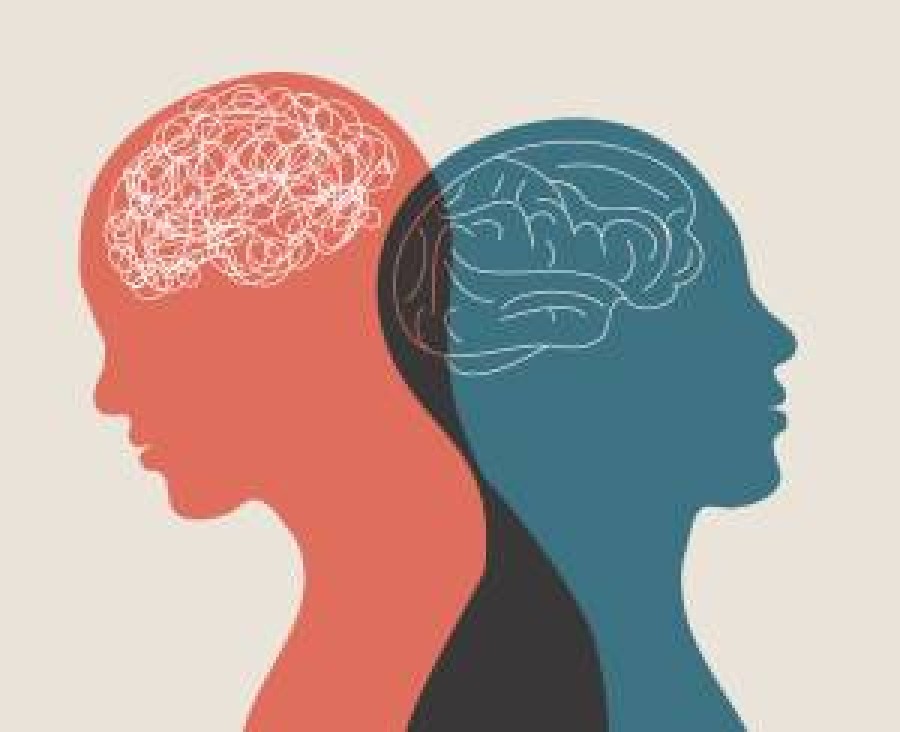Free shipping for orders over 39.00€
Serotonin, the “happy” ally against depression

Depression is one of the most serious mental illnesses nowadays, affecting more than 1 in 10 people globally, regardless of age and gender, as children, adolescents, adult men, and women can suffer from it.
Many confuse depression with the bad mood or sadness that one can experience occasionally, however, it is more complicated and considered a serious disease as in some cases it can even lead to suicide. In fact, depression is the second cause of death of young people after traffic accidents!
Unfortunately, the fear of social stigma is one of the reasons that, while the disease is very widespread, it is only in recent years that more people speak openly about the problem they face and seek a specialist’s help.
Depression usually manifests itself with loss of interest and pleasure, strong feelings of apathy, guilt, intense and undefined fatigue, with sadness and melancholy prevailing in the patient's soul, preventing him from participating in his social and interpersonal relationships. The patient is turned to himself, hides at his home, feels helpless, faced with unimaginable dead ends and deep despair.
There are several forms of depression, others milder (such as i.e., the seasonal) and others more severe (such as i.e., psychotic), with more common the major depressive disorder, which shows severe daily symptoms for at least two weeks and is accompanied by a change in the previous functionality of the person.
What can cause depression?
There are several –mainly social- factors that can trigger the onset of depression in a person:
Some painful, stressful emotional experience like a divorce, a death, a dismissal
If the person has suffered any kind of abuse or neglect, especially in his childhood
If there is a personal history with other mental illnesses
The presence of serious health problems
The existence of a family depression history or other mental disorders
How do I recognize depression’s symptoms?
Each one experiences different symptoms, sometimes milder, sometimes more severe, and therefore he must evaluate them carefully, to seek help as soon as possible to fight against the “invisible” enemy. These are:
Feelings of sadness and blue mood
Changes in appetite, loss, or gain weight
Loss of interest or pleasure from activities you previously enjoyed
Loss of energy or intense fatigue
Sleep disorders
Nervousness
Difficulty concentrating and making decisions
Feelings of guilt
Suicidal thoughts or attempted suicide
If the person detects the symptoms, he should not hesitate to seek his family's and friendly environment's support, and the help of a specialist. Many people either cannot understand the symptoms on their own or are concerned about the social impact they think they will be faced with or are afraid of the drugs that a mental health scientist might suggest, resulting in a situation that is not manageable.
What is serotonin?
Serotonin or the "hormone of joy" is a chemical substance of the human body that affects our mood: it affects behavior, memory and learning, sleep, appetite, sexual desire, body temperature, and even bone health.
Scientific studies have shown that high levels of serotonin are associated with feelings of joy and happy mood, while conversely, low levels are associated with some of the symptoms of depression, such as sadness and bad mood.
When the body is under a regime of great stress, Stress causes a high release of serotonin and, if this lasts for a long period, it leads to depletion of its natural reserves. That's why most antidepressant drugs increase serotonin levels.
For the body to get some help, the natural substance 5-HTP, a metabolite that helps produce serotonin when it is at low levels, can be administered. With the guidance of the health specialist, the patient can come up with his own adapted treatment program and take the dosage that will allow him to overcome depression.
Can I increase serotonin levels in a natural way?
There are natural ways to boost serotonin levels in our body, to improve your mood and protect your body from the onset of many mental disorders.
Get exposed to sunlight
Sunlight has beneficial effects on your mood that's why a simple daily walk for 10-15 minutes in the fresh air and nature can have a positive effect on your organism.
Work out
From walking to aerobic exercise (swimming, cycling, running), the body gets benefits, mood improves, and serotonin levels increase in the brain.
Have a balanced nutrition
Include into your daily diet routine, foods that contain tryptophan, the amino acid that increases serotonin production in the body. These products are cheese, pineapple, tofu, nuts, seeds, green leafy vegetables.
Meditate
Meditation helps to relax, promotes positive thinking, relieves stress, and all these, combined, increase serotonin levels in the brain.







